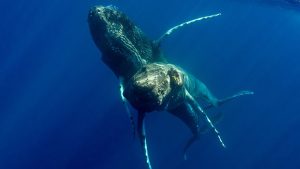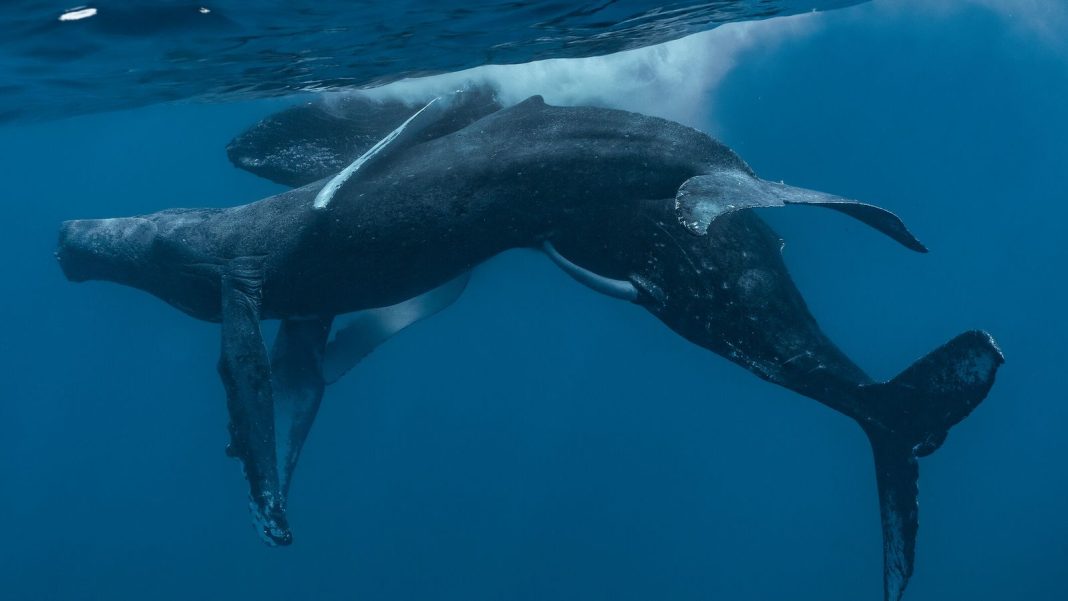By Daniel Edu
In a serendipitous turn of events, two photographers, Lyle Krannichfeld and Brandi Romano, found themselves at the epicenter of a “once-in-a-lifetime encounter” in the waters near Maui, Hawaii. The unexpected spectacle unfolded as humpback whales, captured on film for the first time engaging in sexual activity, displayed an intriguing twist – both participants were male.
Marine biologist Stephanie Stack, alongside the photographers, authored a groundbreaking study that delves into the previously unexplored realm of humpback whale behavior. The discovery, deemed “opportunistic,” occurred as the whales leisurely approached the photographers’ boat off the coast of Maui in January 2022.

The riveting photographs depict a robust male whale exhibiting penetrative behavior towards another, appearing unhealthy, injured, and emaciated. Circumnavigating the vessel multiple times, the healthier whale persistently pursued the other until, after approximately half an hour, the intimate act transpired.
The authors theorized that the emaciated whale might have sought refuge near the boat, finding cover from its companion. The study leaves unanswered questions about whether similar same-sex activities occur between two healthy male whales.
Upon their return to shore, the photographers, particularly Krannichfeld, recognized the profound significance of their documentation, labeling it “a once-in-a-lifetime encounter.” Reflecting on their close connection with the whales, Krannichfeld emphasized that such an event had never been captured before, leaving aspects of mating and birth in the whale community still shrouded in mystery.
The images were shared with marine biologist Stephanie Stack, who confirmed both whales as male. Notably, this occurrence is not the first instance of same-sex behavior in the animal kingdom, as the study cites previous observations in walruses, Amazon river dolphins, and grey seals.





